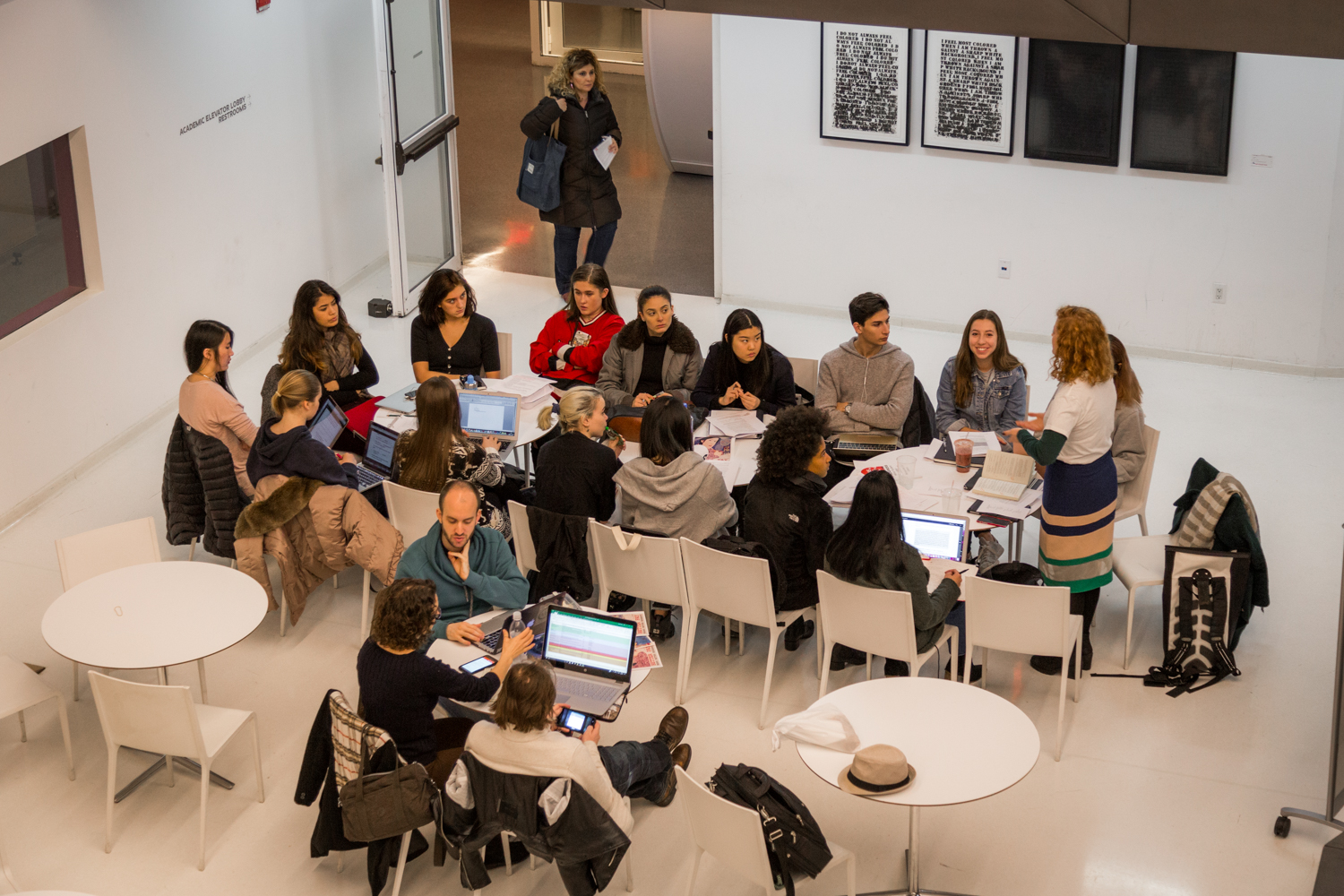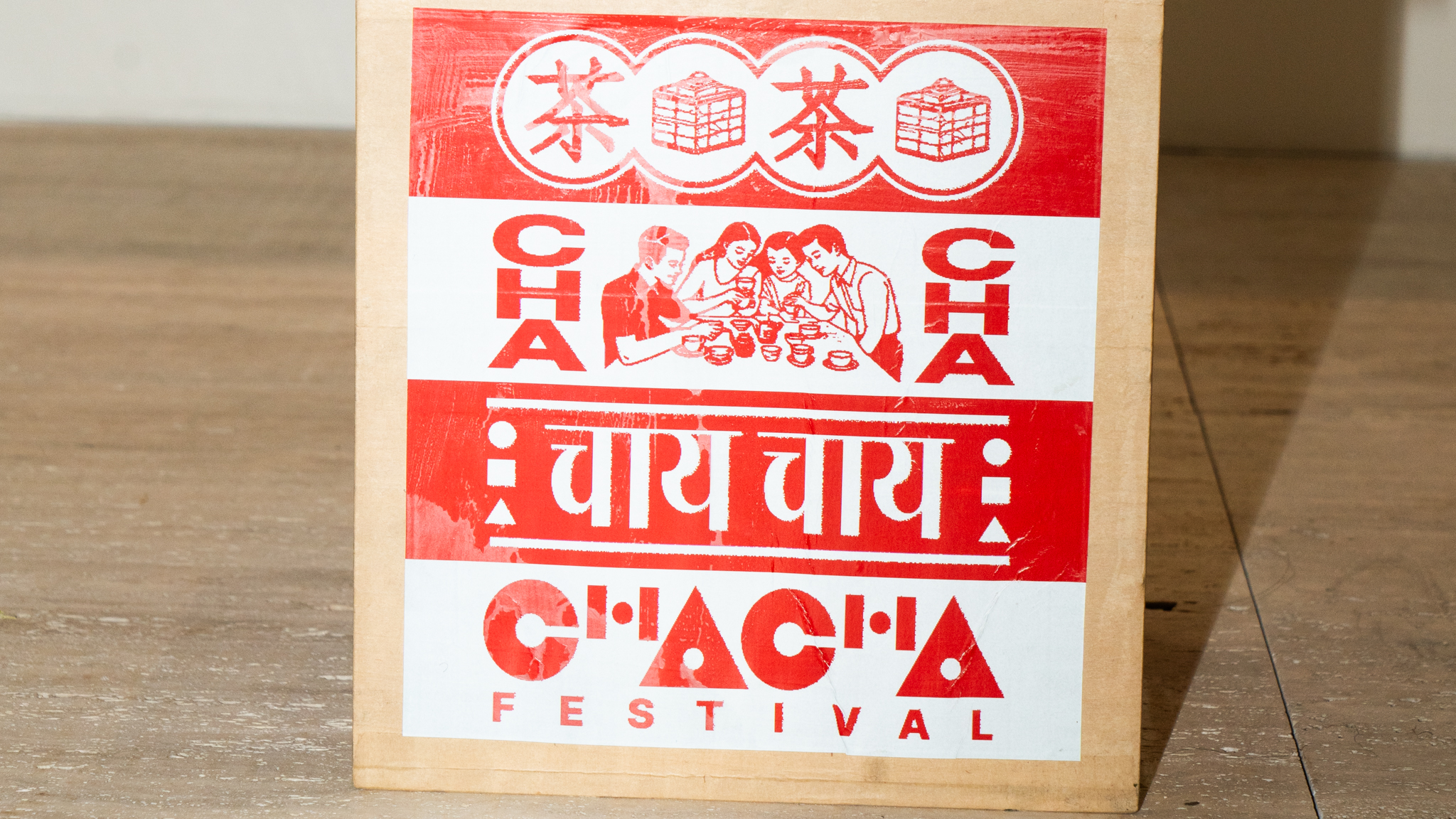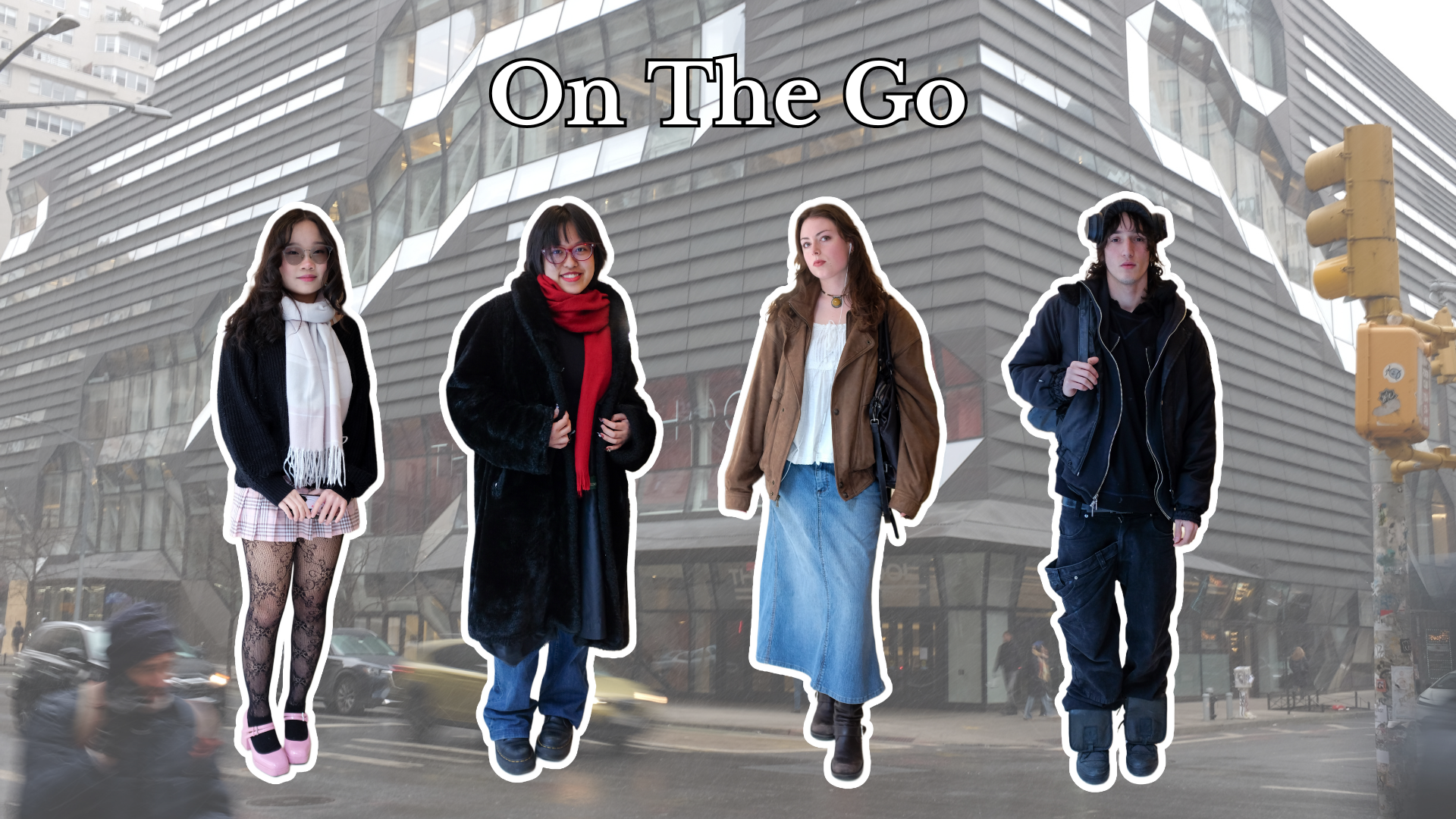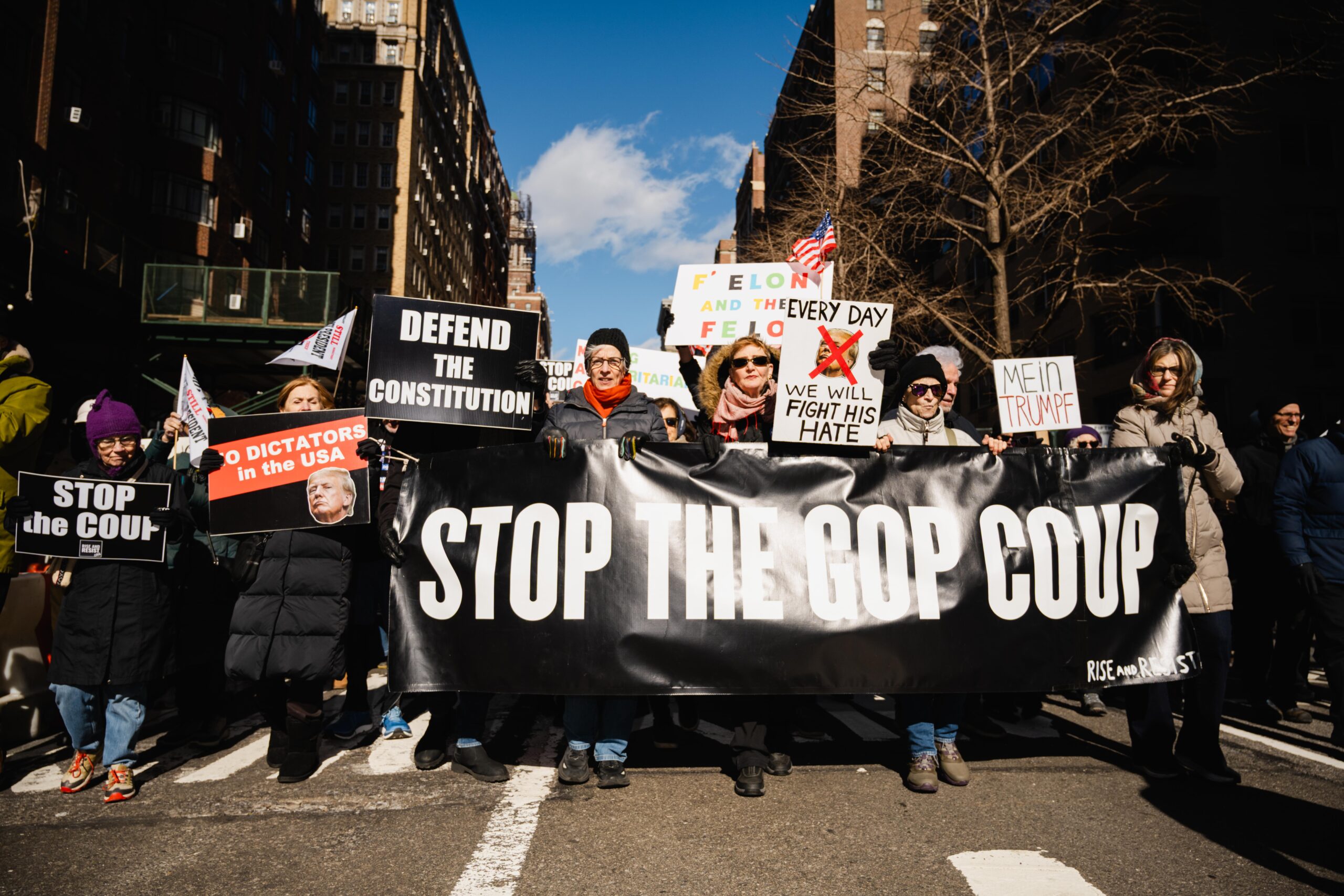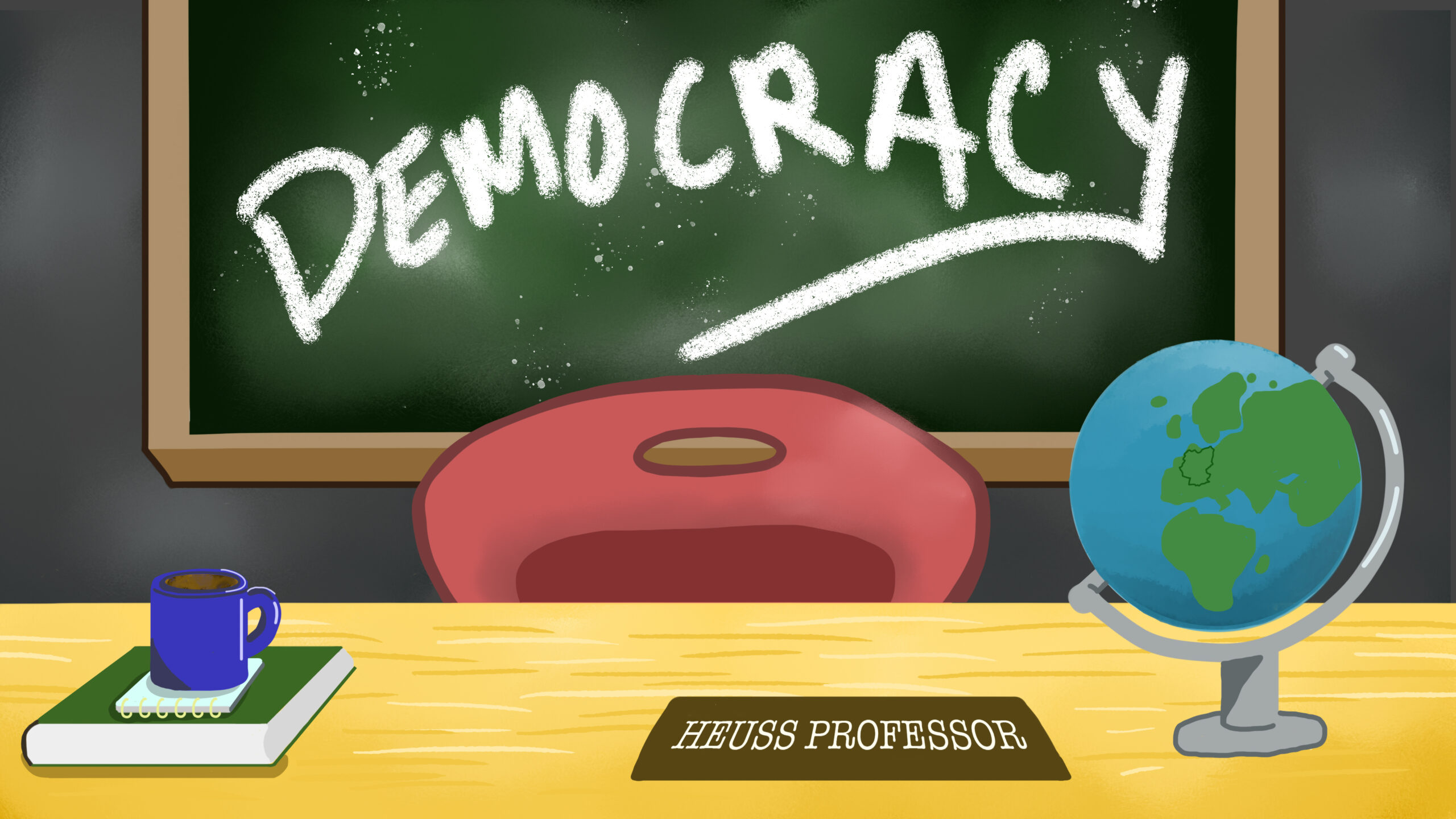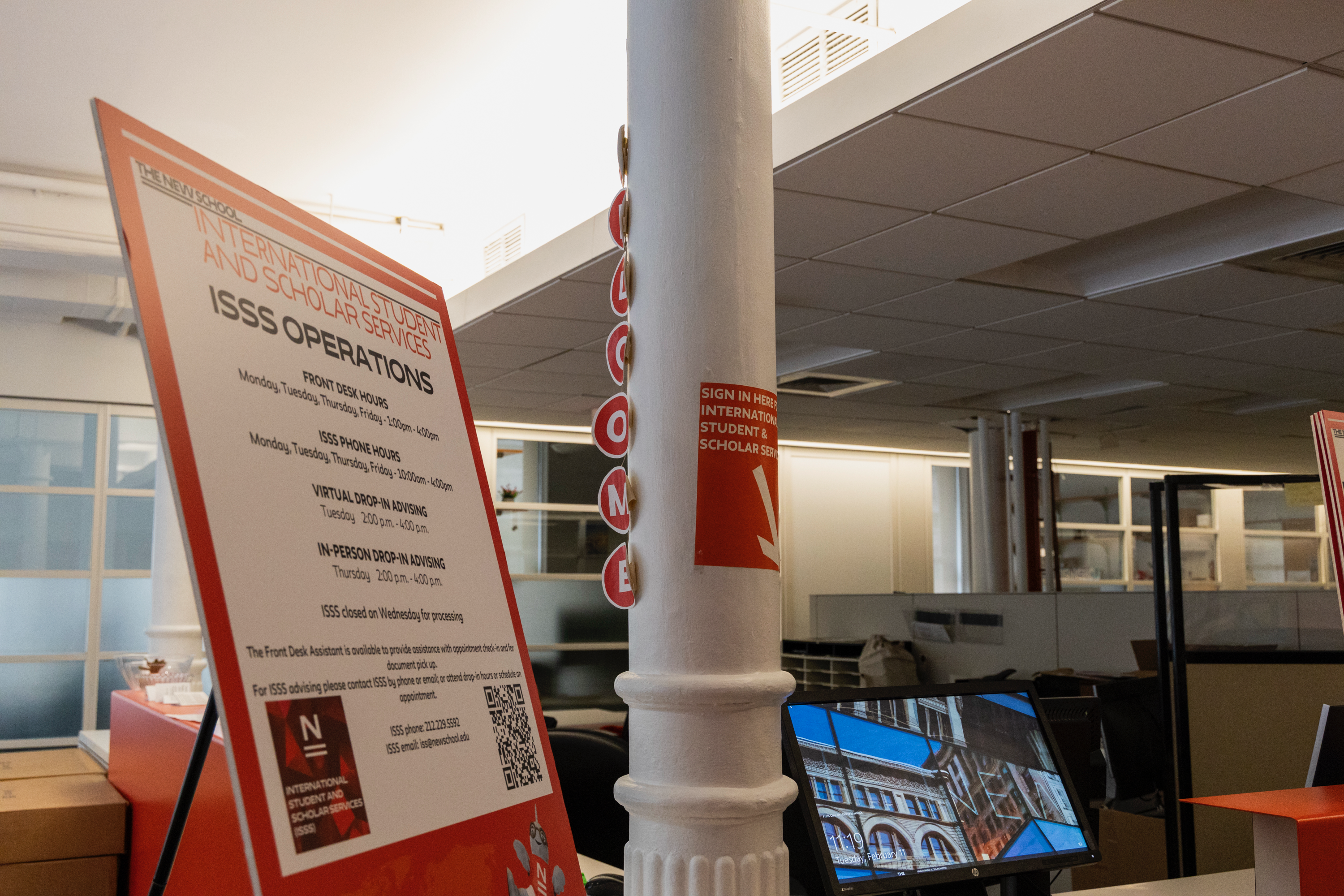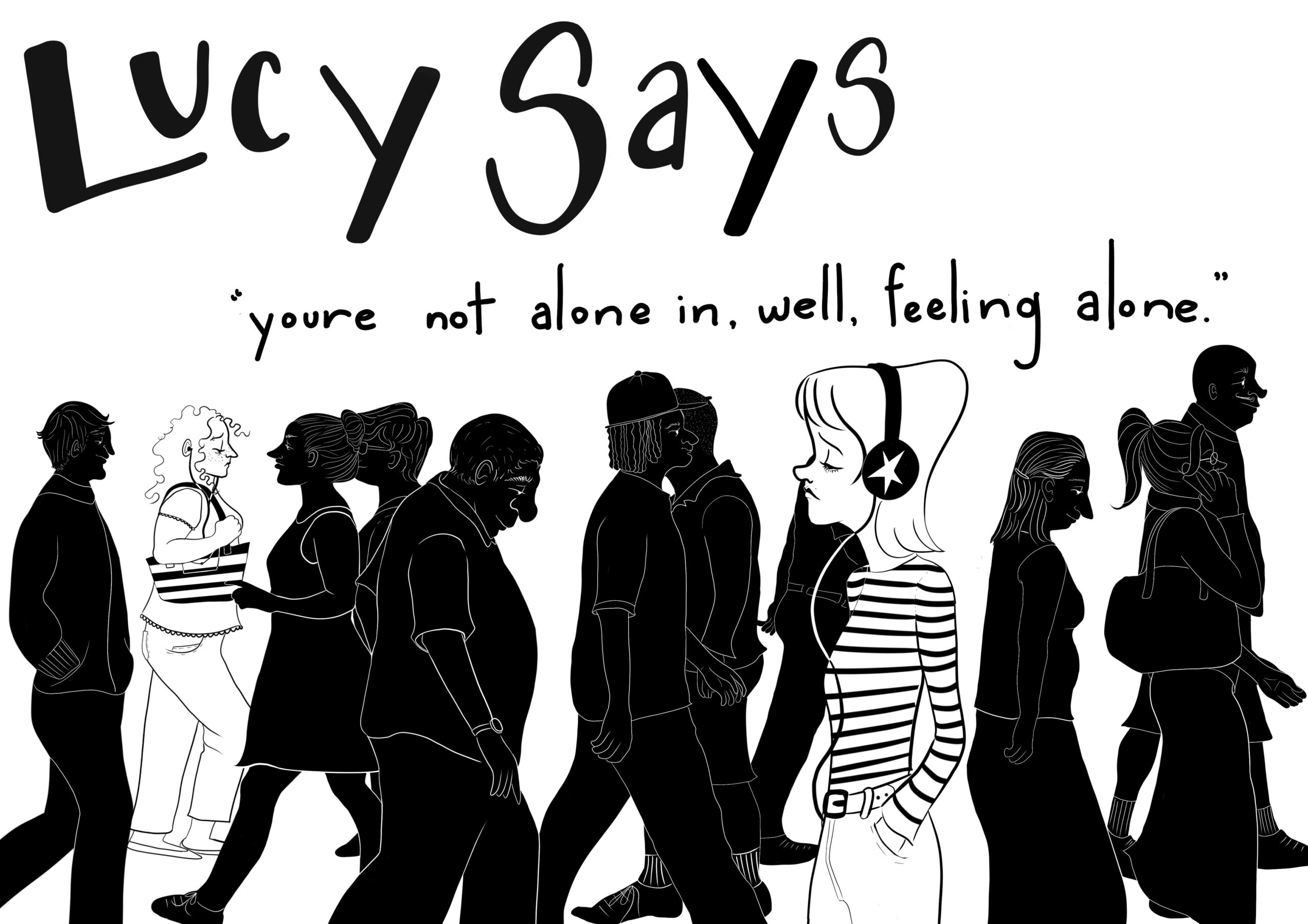Graduate students are willing to strike if the administration continues to block their efforts to unionize and fight for higher pay, they said.
In late December, representatives from the SENS-UAW told President David Van Zandt that if he doesn’t recognize the union, they would start preparing for a strike authorization vote this semester.
Administrators have said they were waiting for the National Labor Relations Board to weigh in on the issue. The federal agency is set to issue their opinion on March 9.
The protest was held all day Thursday, from 10 a.m. to 8 p.m., and was in response to a legal statement the administration issued on Feb. 21 that further impedes a union vote from being held this semester, according to the graduate student workers.

What you need to know:
- Students founded the Student Employees at the New School in 2014, to begin unionizing. In collaboration with the United Automobile Workers, New School graduate students circulated a union card drive, which allows a group to have a vote to form a union, to see if a majority wanted to unionize.
- Despite having majority support amongst graduate students, the school refused to recognize the vote.
- SENS-UAW registered a petition to the National Labor Relations Board to declare that the union card drive was valid and that student workers had the right to unionize.
- The school’s administration hired Clifton Budd & DeMaria, LLP to stall student employees from holding an election, student organizers said. In response, SENS-UAW have held petition drives against the administration for a little more than 2 years.
- On Aug. 23, the NLRB ruled that students who work as teaching and research assistants at private universities have a federally backed right to unionize in a case involving Columbia University student workers. And on Dec. 9, graduate students at Columbia University voted to unionize.
SENS members are frustrated over the administration’s handling of the case and its refusal to recognize student workers as legitimate employees, they said.
“All workers should have the right to collective bargain,” said David Maddy, a masters student and research assistant in the Economics Department. “We don’t get paid very much money, and we are essential to the functioning of the university. And we think that that’s not right, especially in one of the most expensive cities in the world.”
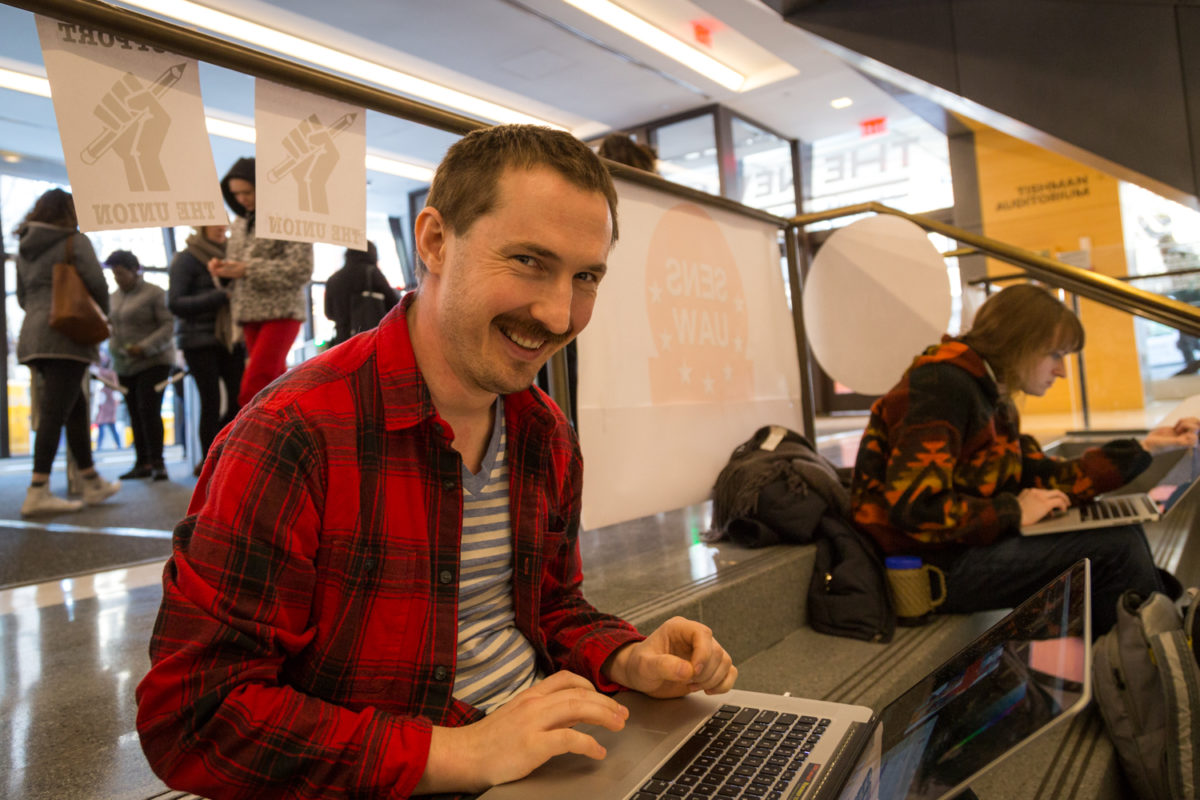
“It’s a very sad position to be in, where an administration of a school that has historically fought for social justice is actually trying to prevent social justice from being at work — and actively so,” Maddy said, taking a break from his work on the University Center steps. “We think it’s wrong, and so we wanted to come back out and display that we have a lot of work to do, and all of this work is actually being paid for at under-market value by the university.”
Graduate workers at New York University and Columbia have already voted to form a union. And in the case of NYU, their administration was in a legal battle with the graduate union, but it dropped the legal fight in order to recognize the union, an example The New School could follow, according to Ibrahim Shikaki.
“[The administration] can voluntarily accept,” said Shikaki, a teacher’s assistant and a Ph.D student in Economics. “We don’t have to go through the courts. We don’t have to go through NLRB. They can voluntarily consent and say, ‘You do have the right to form a union for student workers, and let’s let you and all the graduate workers have an election, and then graduate workers can decide if they do want or don’t want a union.’”
“It’s not that we’re saying yes so that we immediately have a union, we’re just saying we want an election so graduate students can say they want or don’t want one. The first option is for them, as NYU did, to voluntarily accept a union that recognized student workers,” Shikaki said.
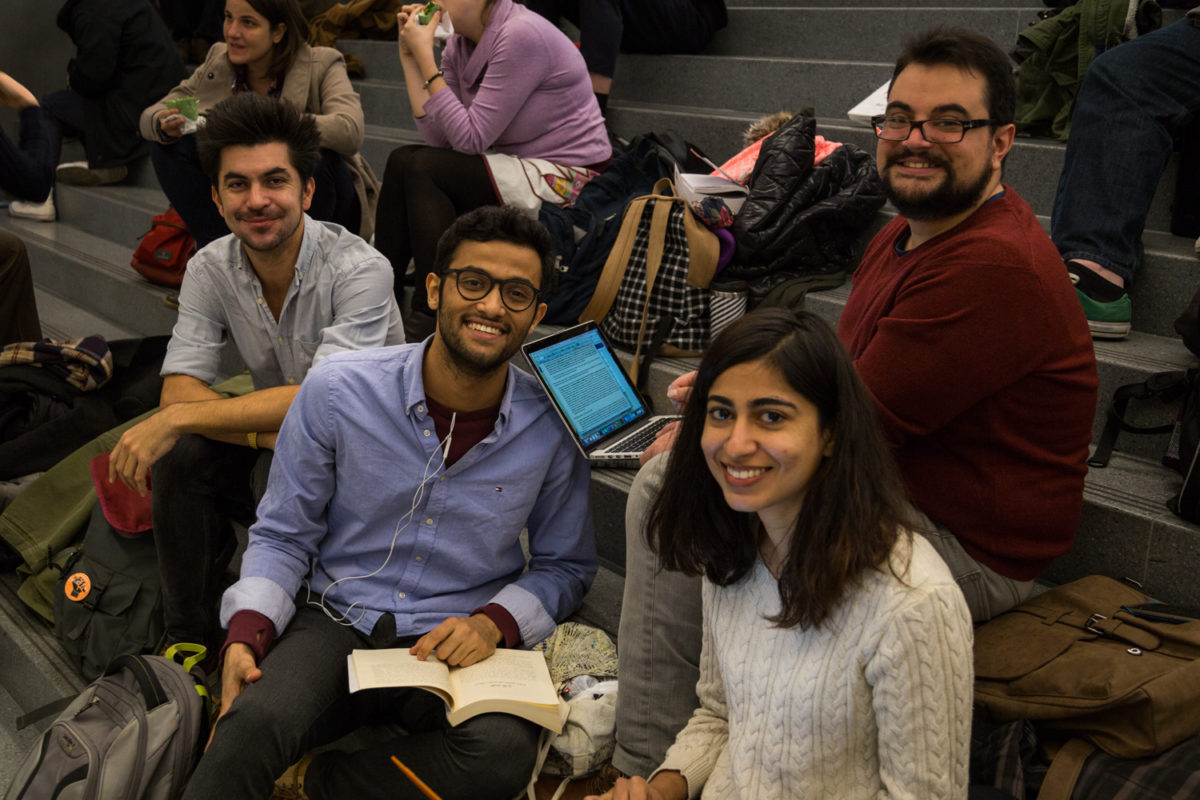
The New School administration still has not recognized its student workers’ right to hold a union vote despite the NLRB ruling in accordance to the Columbia case. According to the statement the administration released in February, the Columbia decision was not applicable to it’s own student body, because TNS students are considered to be “casual” workers. It stated that:
“As a preliminary matter, TNS maintains that the Columbia University decision is not dispositive of the situation at The New School, particularly with respect to whether any putative graduate assistant ‘employees’ are ‘temporary or ‘casual.’”
The argument is the Columbia University primarily funds its graduate assistants with longer term commitments than the The New School, which can only partially fund a certain amount of graduate assistants without a recurring promise of future financial aid.
TNS administration responded to the protest by saying that they were waiting on NLRB guidance on important legal issues, “such as scopes and size of the unit, and who would be eligible to vote in the event on an election for a collective barganining agent.”
“We hope to have these issues clarified and resolved,” they added.
The protest on Thursday was just another message to the administration by the SENS-UAW to show that this is a serious issue, and that they are willing to take further action before the NLRB delivers its own ruling on the case.
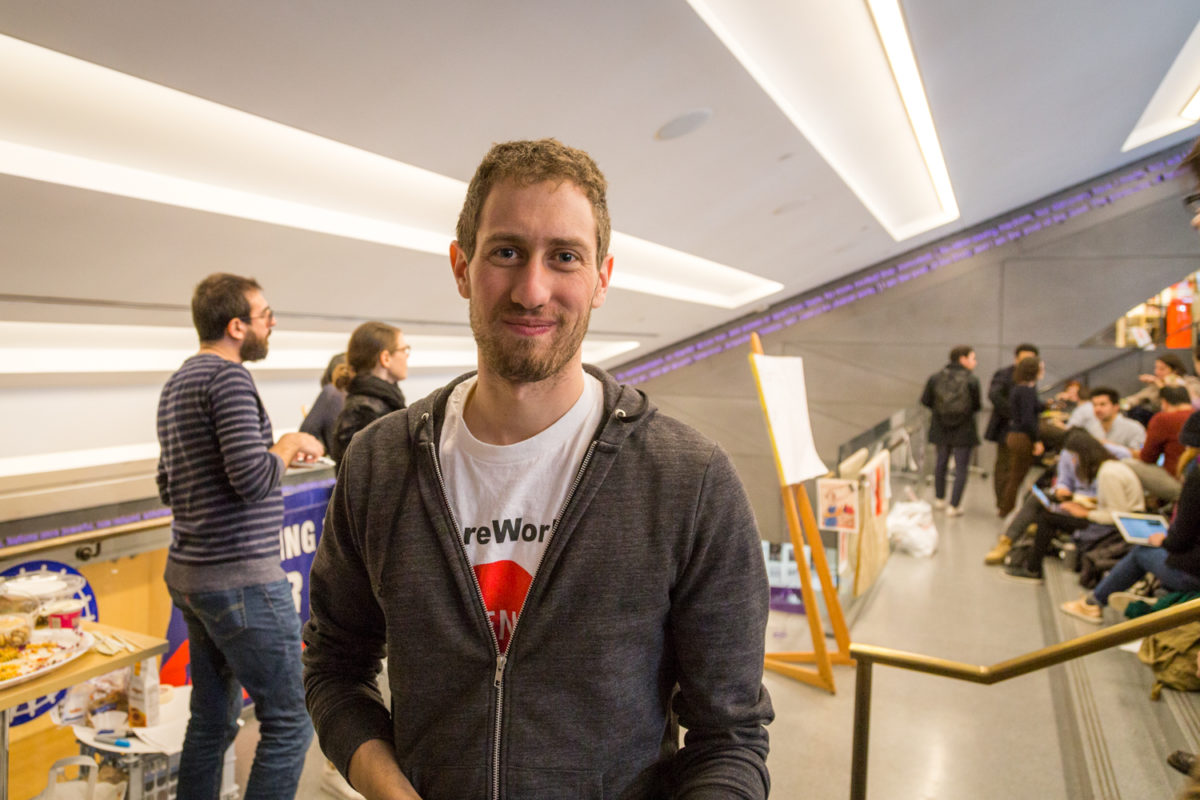
“It’s also important to emphasize that we’re not doing this for fun. Nobody wants to go on strike,” said Mark Rafferty, am Economics MA student and volunteer organizer, who delivered the warning to strike to President Van Zandt. “It will be a massive hardship for students, but we understand that it’s for the greater good. We have to do this in order to get our rights for later on.”
“We’re not really hoping there’s going to be a strike, but we have to show the administration that we are serious, and if we have to, we will,” Rafferty said.
Photos by Don Eim.

